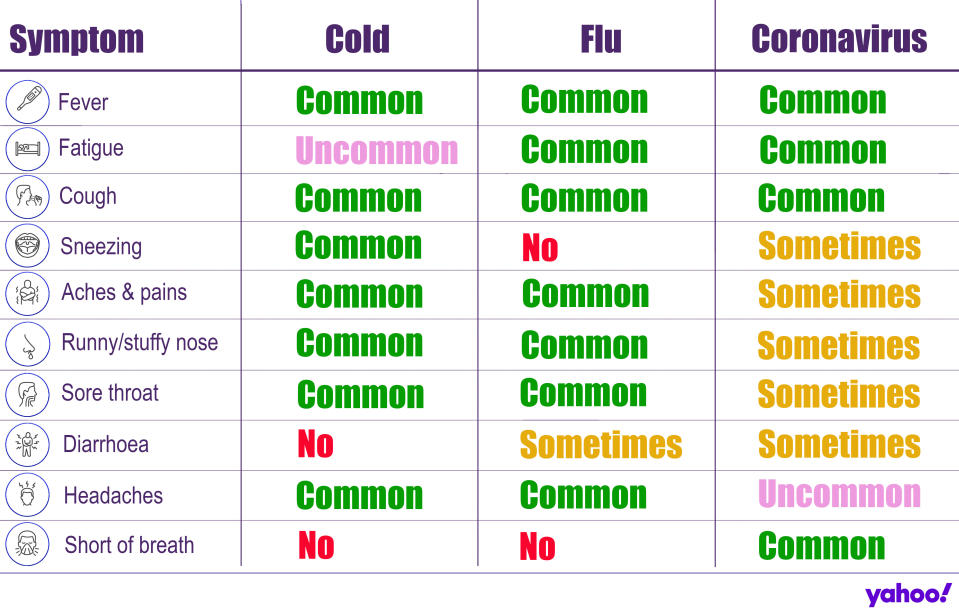As pregnant Carrie Symonds self-isolates, here's why expectant mothers are urged to stay indoors due to coronavirus

Carrie Symonds is said to be working from home amid the coronavirus outbreak.
The PR officer, who is pregnant with her first child, is following her fiancé Boris Johnson’s advice for expectant mothers to “self-isolate” for up to 12 weeks.
While all Britons have been urged to avoid social contact and work from home if they can, Johnson said on Monday the advice is “particularly important for people over 70, pregnant women and those with some health conditions”.
Limited evidence suggests pregnant women are not at an increased risk of complications from the virus, but officials have urged them to self-isolate to be on the safe side.
With the new Covid-19 strain virtually unheard of at the start of the year, England’s chief medical adviser Professor Chris Whitty warned it is “very early in what we know about this”.
Latest coronavirus news, updates and advice
Live: Follow all the latest updates from the UK and around the world
Fact-checker: The number of Covid-19 cases in your local area
Explained: Symptoms, latest advice and how it compares to the flu
“Infections and pregnancy are not a good combination in general and that is why we have taken the very precautionary measure while we try and find out more,” he said.
Pregnant women are entitled to a free flu jab on the NHS.
Expectant mothers are thought to be at higher risk of complications from flu, which could lead to their baby being born prematurely or even a stillbirth.
With relatively little known about the Covid-19 virus, some pregnant women are anxious the infection could spread to their unborn child.

The Covid-19 virus is thought to have emerged at a seafood and live animal market in the Chinese city of Wuhan at the end of last year,
Once the epicentre of the outbreak, cases in China have been plateauing since the end of February.
Over 201,000 patients have been reported since the virus was identified, according to John Hopkins University data, and it is now in more than 150 countries across every inhabited continent.
Of these patients, more than 82,000 have “recovered” and are now testing negative for the virus.
Globally, the death toll has exceeded 8,000.
The UK has had 1,960 confirmed patients and 71 deaths.
Could a pregnant woman pass the coronavirus to her unborn baby?
The Covid-19 virus is one of seven strains of the coronavirus class that are known to infect humans.
Others include the common cold and severe acute respiratory syndrome (Sars), which killed 774 people during its 2002/3 outbreak.
Coronaviruses in general are not known to transmit “intrauterine”, i.e. via the womb.
They may, however, raise the risk of complications.
To learn more, scientists from the Huazhong University of Science and Technology looked at four pregnant woman who tested positive for the coronavirus before giving birth at Wuhan's Union Hospital.
The babies were isolated in neonatal intensive care units and fed formula milk.
Three out of four tested negative for the coronavirus via a throat swab, the scientists wrote in the journal Frontiers In Pediatrics.
The fourth infant’s mother did not give permission for her baby to be tested.
One of the newborns experienced a “minor breathing issue” for three days, treated via non-invasive mechanical ventilation.
Early research suggests the Covid-19 virus is mild in four out of five cases.
In severe incidences, patients are developing pneumonia.
This occurs when the airway infection spreads to the air sacs in the lungs, causing them to become inflamed and filled with fluid or pus.
The lungs then struggle to draw in air, resulting in reduced oxygen levels in the bloodstream and a build-up of carbon dioxide.
Ventilation can be provided via a tube down the nose or mouth and into the windpipe.
In more severe and invasive cases, the patient has surgery to put a hole in their neck and the tube is inserted into the hole.
Two of the babies in the study developed a rash, which is not a symptom of the coronavirus.
“We are not sure the rash was due to the mother's Covid-19 infection,” said study author Dr Yalan Liu .
None of the babies suffered the tell-tale cough or fever, with X-rays and blood tests also coming back normal.
The scientists concluded all four babies were healthy, with their mothers making a full recovery.
A previous study by the Zhongnan Hospital of Wuhan University looked at nine pregnant women with a mild Covid-19 virus infection.
None of their babies tested positive for the virus, with breast milk, amniotic fluid and umbilical cord samples all coming back clear.
Fears were raised after a newborn baby in London tested positive for the coronavirus on 14 March.
Speaking at the time, Professor Richard Tedder from Imperial College London said: “It is important to say at this point in time the detection of Covid-19 on the sample from the child does not necessarily mean the child was infected.
“It could well have come from the mother at the time of delivery.”
The Covid-19 virus mainly spreads face-to-face via infected droplets expelled from a cough or sneeze.
There is also evidence it may be transmitted in faeces or urine.
When a baby makes its way down the birth canal, it could come into contact with the virus in human waste.
“The question of risk to a newly born child being nursed by a mother who is known to be infected is a matter that will need careful consideration,” added Professor Tedder.
“The absence of detectable virus in breast milk would appear to reduce the risk of breastfeeding; however, the close, intimate and entirely understandable contact between a mother and her baby will raise questions about how best to care for them.”
The Royal College of Midwives has urged expectant mothers to attend scheduled hospital appointments, calling them “essential to ensure the wellbeing of pregnant women and their babies”.

What is the coronavirus Covid-19?
Most of those who initially caught the Covid-19 virus worked at, or visited, the market in Wuhan.
Symptoms tend to be vague and flu-like, such as a cough, fever, fatigue and slight breathlessness.
To ward off infection, officials urge people to wash their hands regularly and maintain social distancing.




